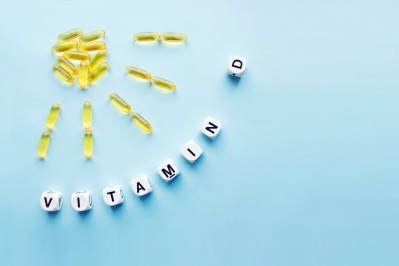Vitamin D story becomes ever more compelling, supplement brand founders say

Drs Arielle Levitan, MD and Romy Block, MD, co founders of personalized supplement retailer Vous Vitamin, said the recent findings on vitamin D have not turned the nutrient into some sort of panacea. But research that shows the levels of the nutrient in the blood seem to play a role in COVID-19 outcomes does emphasize the importance of proper supplementation, they say.
Vitamin D’s importance has long been known
Vitamin D, sometimes referred to as the ‘sunshine vitamin,’ is a critical factor in many biological processes. The nutrient is critical in proper bone health via its regulation of proper calcium and phosphate metabolism. It was originally known as a substance that could cure the bone disease rickets and was dubbed “D” because it was the fourth such critical nutrient discovered. It has also been linked with a lower incidence of cancer.
Vitamin D is synthesized by cells in the skin in response to ultraviolet radiation. It’s postulated that that natural mechanism is one of the evolutionary stimuli that led to the development of fair skin in human history, as Homo sapiens moved out of the tropics where the species originated and into northern Europe and Asia. Fair skinned individuals can more easily make adequate levels of the vitamin in their skin with weak sunlight, as one might get in winter in northern climes.
But modern life has given rise to significant prevalence of vitamin D deficiency. Few people spend as much time outside as they did in the past, and people with light complexions are advised by dermatologists to use sunscreen—which cuts the amount of UV radiation delivered to the lower dermal layers—to lessen the risk of developing skin cancer. (In past centuries with lower life expectancies many people may have died before skin cancer became an issue.)
Pandemic concerns revitalize interest in vitamin
The worldwide pandemic crisis has reignited interest in the vitamin and its role in the immune system. In a meta analysis published in early May, a team led by Dr Philip Calder of the University of Southampton in the UK wrote that there is “an indisputable relation between vitamin D and the immune system.”
And recent research shared by a team from Trinity College in Dublin, Ireland, pointed to a lower incidence of COVID-19 mortality in populations living south of the 35th parallel, where fewer people are vitamin D deficient.
“These research results are far from what you’d get from an RCT, but we can take some indications from them,” Dr Levitan told NutraIngredients-USA. “We know that red blood cells have vitamin D receptors, and we know that vitamin D can control inflammation. So it’s not surprising that vitamin D can play a role.
“But even if you show that a population with lower vitamin D levels has poorer COVID-19 outcomes it is by no means true that vitamin D can prevent COVID-19,” she cautioned.
Dr Levitan teamed up with Dr Block to launch Vous Vitamin, a personalized nutrition supplement company that matches end users with products formulated to fit their needs as judged by the responses to a questionnaire. The brand came out of the doctors’ personal experiences in their practices (Dr Levitan is an internist while Dr Block was trained as an endocrinologist). Patients were constantly asking what they should take and how much.
One of the issues the pair wanted to address was what they considered to be a large amount of misinformation concerning supplementation. Some enthusiasts advocate for mega doses of vitamins, which in the case of fat soluble substances, such as vitamin D, could be potentially harmful, the pair say.
Testing brought levels into focus
Vitamin D supplementation came into sharper focus with the advent of a simple, reliable way to test for 25-hydroxy vitamin D, which is the longer half life form the vitamin takes after passing through the liver and into the blood stream.
Dr Block said there was a flurry of testing after the blood test first became available, but the frequency of testing fell off after few correlations were found between better health outcomes for specific blood levels, once outright deficiency had been dealt with. Experts finally settled on levels of 30 to 40 on the test as being adequate for general health, though some authorities recommend levels of ≥50 nmol/L (20 ng/mL) as desirable for optimum health.
But Dr Block said that too much vitamin D could also be a bad thing, and doesn’t recommend giving more than 2,000 IU of vitamin D a day, even though some experts advocate for much higher dosages.
“With my patients I always aim to achieve a 25(OH)D level of about 40, and I’m OK with the mid 30s,” she said. In her view, there is little evidence that levels above 50 are called for.
And as far as building up patients’ levels are concerned, Drs Levitan and Block caution that it is a process of slow and steady progress, unlike boosting levels of a water soluble substance such as vitamin C.
“I would consider vitamin D one of the more difficult vitamins to build up in the body. What you are actually trying to do it to rebuild your storage. I tell patients that it may have taken years for your body to become deficient, and it’s going to take at least months to build it back up,” Dr Block said.
“This pandemic is an opportunity for people to take a step back and look at their overall health and vitamin status,” Dr Levitan said.
















